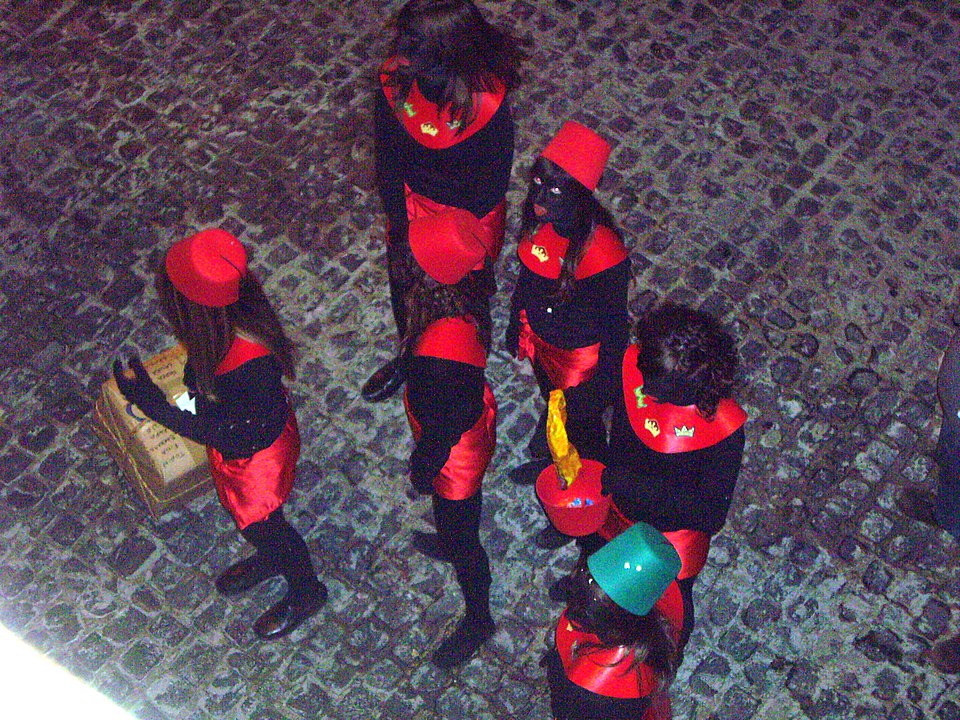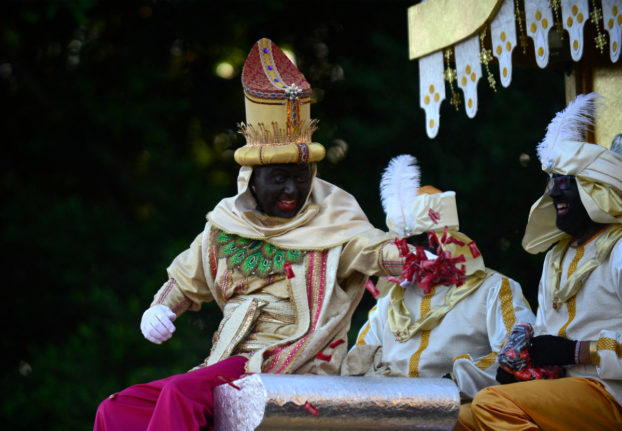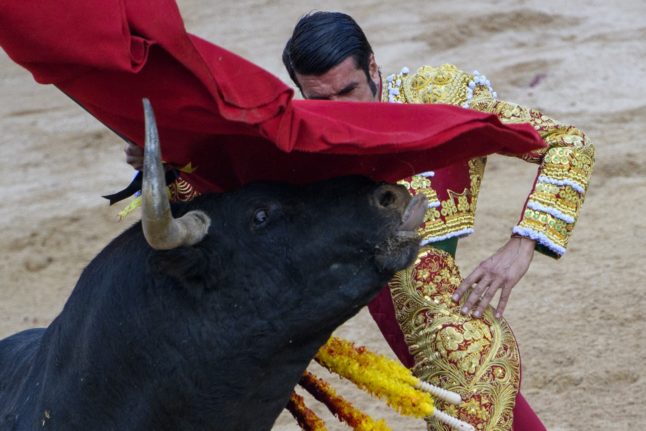For many people, the strong sense of tradition in Spain is one of its most attractive traits. But not all traditions translate well into the modern world, and Spain can often seem behind the times in this regard to outsiders.
This has certainly been the case in Madrid this week, as a district council in Chamartín inadvertently reopened the seemingly annual debate about blackface in Spain after it sent a Christmas video to school children featuring an actor in dark makeup playing King Balthazar.
Local children were offered the chance to receive personalised Christmas messages from one of the Three Kings, and the council published an online form that parents had to complete in order for their children to receive the messages by WhatsApp.
READ ALSO: Why Spain loves the Three Kings more than Santa
Yet many parents were shocked to see that the messages from King Balthazar were from a white actor with his face painted brown and pretending to speak Spanish with a foreign, perhaps African accent. The video has generated widespread criticism on Spanish social media.
Maquillado para hacer de Baltasar y con acento forzado: el vídeo que el Ayuntamiento de Madrid ha enviado a los niños de Chamartín
👉https://t.co/D0FfhgNnp3 pic.twitter.com/gQ1hb7D0CN
— La Vanguardia (@LaVanguardia) January 5, 2024
Chamartín council told Spanish news outlet La Sexta that the personalised message service was awarded to a private company and that the ‘blackface’ actor was brought in to replace the original (presumably black) actor who was allegedly ill with COVID.
The council claims it was unaware of this, and first found out about the controversy when it saw the social media storm.
In recent years in Spain, King Balthazar has increasingly been played black actors as awareness about blackface has risen.
Anti-racism groups across the country have campaigned against the tradition, something that in Spain is seen by many as uncontroversial but in large parts of the world is considered racist, and even banned in some countries.
In 2019, football star Andrés Iniesta faced backlash after posting a photo of himself on Twitter smiling next to two friends with blacked-up faces. Blackface once even made it onto MasterChef Junior in recent years on Spain’s state broadcaster (the equivalent of the BBC).
In December 2014, over 60,000 people signed a petition calling for Madrid to choose a black man to play Balthazar in the parade, and a year later in 2015, Madrid’s City Hall announced that it would end the tradition and enlist a black actor to play Balthazar.
READ ALSO: Madrid calls time on blacking up ‘tradition’ of Three Kings parade
Yet almost a decade later, the practice of white actors painting themselves black to caricature black people is still showing up in Spain’s Christmas traditions, and the mishap in Madrid has reopened the debate about blackface in Spain.
Many Spaniards argue that it is just that, a tradition, that it’s something that’s always been done to portray Balthazar, with no malicious intent, and that it doesn’t say anything about Spain as a country.
Some on the Spanish right even suggest efforts to ban it is an example of overzealous political correctness.
Critics on the other hand suggest that blackface shows the unconscious racism still present in Spain, and that in a modern country, black actors should be used to reflect the increasingly diverse nature of Spanish society.
The often tone-deaf nature of debate surrounding racism in Spain was most recently brought out when Real Madrid star Vinicius Junior was repeatedly racially abused during matches.

Yet traditions considered racist abroad live on in Spain. In Alcoy in Alicante, their annual Epiphany parade – Cabalgata Reyes Magos– features hundreds of black ‘page boys’ in exaggerated blackface as they give out presents to local children.
For many locals, including thousands who have signed petitions to maintain the controversial tradition, there is nothing remotely racist about the practice.
Deputy Mayor of Alcoy Jordi Valentí, told Al Jazeera that the tradition “has no racist or slave component.”
“On the contrary, it is the most magical character,” he added. “What’s more, all the children prefer to give their letter to King Balthazar.”
According to the Spanish Observatory of Racism and Xenophobia, part of the government’s Ministry of Migration and Inclusion, there are between 700,000 and 1.3 million African people and people of African descent living in Spain.
The study hasn’t been conducted along racial lines, referring instead to “race” as a cultural construct, but it does focus on the country’s “afro” or “black” population and the struggles they face.
Spain is not the only European country that lags behind its neighbours when it comes to blackface.
In the Netherlands, ‘Black Pete’ is a Christmas character that many Dutch people wear blackface to dress up and take part in celebrations.



 Please whitelist us to continue reading.
Please whitelist us to continue reading.
Member comments